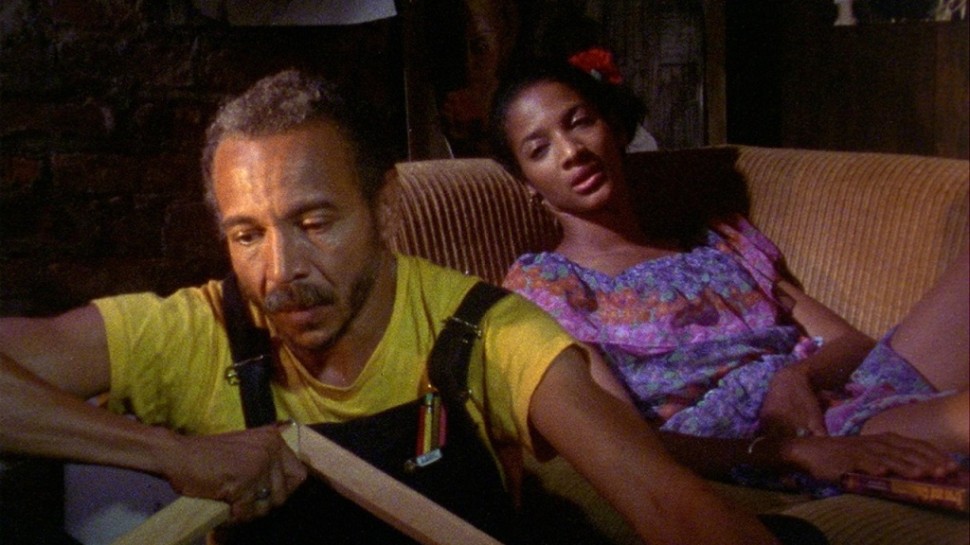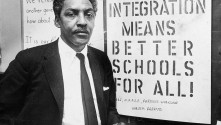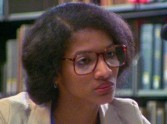
Losing Ground
Free Admission
With Seret Scott, Bill Gunn, Duane Jones.
US, 1982, 35mm, color, 86 min.
Print source: Yale Film Archive
One of the first narrative feature films directed by a Black woman, Kathleen Collins’ Losing Ground never received a commercial release, and after its premiere in 1982 and a subsequent screening at MoMA in January 1983, it showed only sporadically over the years. Collins died in 1988 at the age of forty-six, having made just this miraculous film and a short. Losing Ground remains an exquisite anomaly in feature filmmaking: a window into the realities and fantasies of an intellectual Black woman and her artist husband. To this day, there are no comparable characters to these utterly unique beings on screen.
Fortunately in 2011, writer and professor Terri Francis, then teaching at Yale, reached out to Collins’ daughter, and soon, funding for a partial restoration of the film was raised. Ronald Gray, the film’s cinematographer, oversaw the color timing of the scanned and digitally cleaned negatives, which were then shot back to film. By accessing the original negatives and restoring the audio with newly discovered magnetic sound elements, the preservation resulted in vast improvements in both picture and audio quality and, for the first time, 35mm prints of the film. In 2015, Milestone Films released it commercially, to the critical acclaim and celebration this remarkable film has long deserved. – Brian Meacham, Yale Film Archive
The Harvard Film Archive welcomes Seret Scott to the cinematheque for a conversation after the film and earlier in the afternoon, she will also speak about her career in the theater as an actor, director and writer. The talk will be held at 4pm at the HFA cinematheque.
Seret Scott stars as Sara Rogers, a professor of philosophy researching the philosophical and religious meaning of the “ecstatic experience.” Her husband Victor—played by legendary writer/actor/director Bill Gunn—is an artist who rents a house in the country to celebrate his sale of a painting to a museum, but their relationship is tested by both Victor’s growing involvement with a young woman who models for him and Sara’s decision to return to the city to accept the invitation of one of her students to act in his film. Collins drew on her own life story and identity—as an internationally known playwright, a voting rights activist and professor of film—to present the life and marriage of a Black couple, in its ordinariness and its complexity, in itself a political statement at the time.
Free admission to this screening made possible by the Harvard Library Office for Antiracism and Jerome Offord, Jr., Associate University Librarian for Antiracism.












